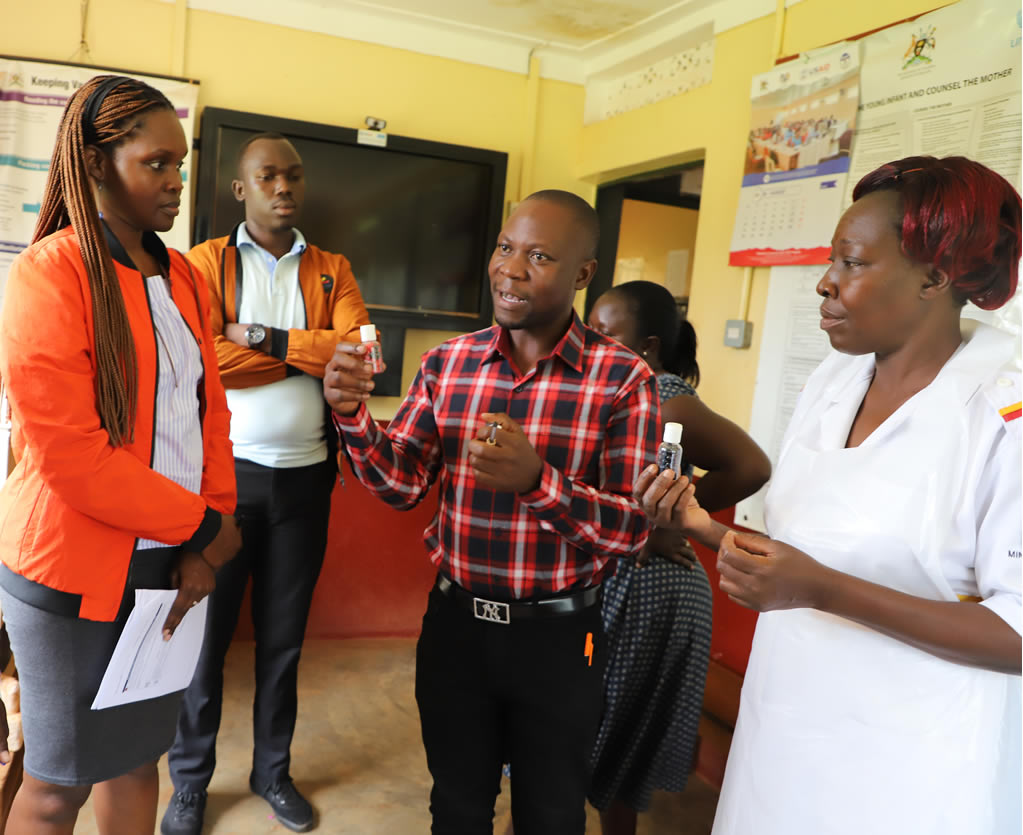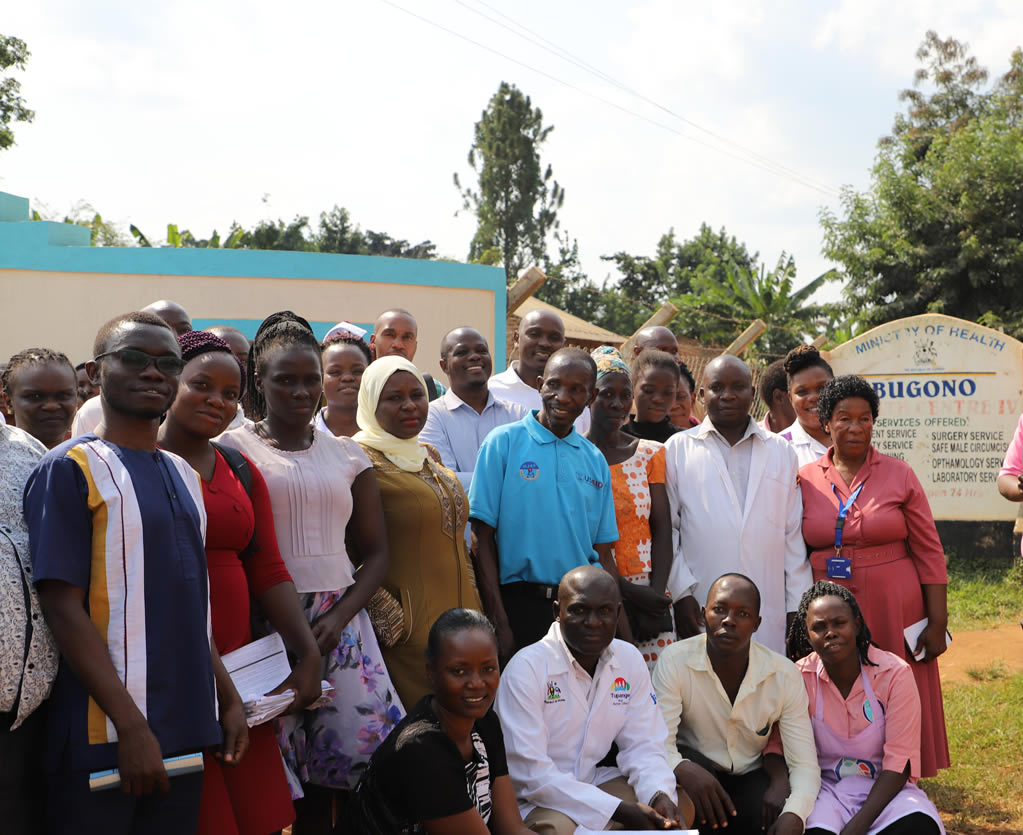MJAP actively engages people living with HIV ‘expert clients’ (including key population leaders/ peers, HIV positive peer mothers and adolescent peers), Village Health Teams, community-based and civil society organizations, to provide holistic HIV and related services.
These individuals and organizations complement the facility-based services including serving as linkage facilitators; peer supporters; mobilizers; to enhance retention in care.
We work with community partners to provide community HIV services including ART refill centers which has helped to promote rapid initiation and retention in HIV treatment. Through our community component, we have strengthened the bidirectional linkages to prevention, treatment, OVC and other services between supported facilities and community-based services.
Community Client Led ART Delivery (CCLAD): MJAP supports scaling up of DSD models to eligible clients through CCLAD groups. CCLAD groups were introduced by the Uganda Ministry of Health to reduce the overwhelming number of people receiving treatment at health facilities and to reduce the cost of accessing treatment to clients. Clients that meet the CCLAD criteria form peer support groups and identify a group leader who collects drugs on behalf of the group members.
Community HIV testing: To ensure that our services are within reach, we conduct community HIV testing approaches targeting people that are at a higher risk of contracting HIV.
Assisted Partner Notification (APN)/ Services – With the consent of our clients, and while maintaining their confidentiality, we reach out to their partners and encourage them to test for HIV.
Social Network Strategy (SNS): Through our clients, we reach out to their social contacts that are at risk contracting HIV and encourage them to test.
HIV Self-Testing (HIVST) – To reach men, younger adults and those who do not readily accept HIV testing, we encourage self –testing. In the facilities MJAP supports, we provide HIV self-testing kits and data collection tools to health workers particularly targeting men/spouses/sexual partners of index clients whom the clients have disclosed to but had no time to come to the clinic or cannot be reached via the phone.


Reaching men: Community model used to eligible men aged 25 years and above: MJAP uses several avenues including homes, workplaces, and social hang out places to reach men and provide HTS.
Discordant couples’ forum: WHO defines discordant couples as those where one partner is HIV-infected and the other is not, where a couple is defined as two persons in an ongoing sexual relationship.
To reduce the risk of HIV transmission among discordant couples, we conduct discordant couple’s meetings at Mulago ISS, Butabika and Kiruddu hospitals.
Adolescent Peer support – MJAP currently has 981 active adolescents and young adults (AYA) in care within our supported sites of whom 269 are male and 712 are female.
We strive to provide quality HIV care, treatment, and support for the children and adolescents receiving HIV services in supported health facilities. Our adolescent forums provide safe spaces for adolescents and young adults to discuss issues that they face and receive psychosocial support.